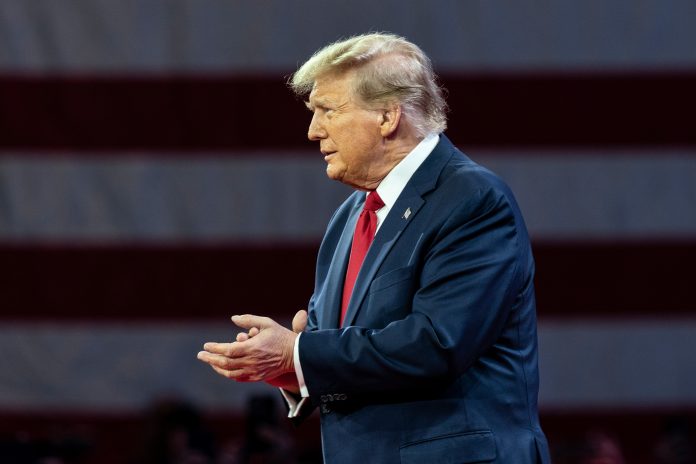During a rally on Oct. 22 in Greensboro, North Carolina, Donald Trump highlighted his proposal to offer tax breaks for purchasing vehicles, but only if they are manufactured in the United States. He emphasized that this policy would benefit American automakers and the domestic workforce, positioning it as a pivotal strategy to revive U.S. manufacturing.
Additionally, Trump argued that the deductibility of interest benefits only those who buy cars manufactured in the U.S., stressing the importance of boosting local production rather than supporting foreign automakers.
Trump’s plan to allow car buyers to write off loan interest on their federal taxes aims to stimulate U.S. car sales and support automakers based in Detroit, a significant hub for the U.S. auto industry. He also criticized the idea of offering tax breaks for cars manufactured overseas, highlighting the long-term losses suffered by U.S. industries as supply chains shifted abroad. “Why would we give them tax breaks if they manufacture cars in China, Japan, or other countries that have taken our business over the years?” he stated.
While this proposal appeals to domestic automakers, Trump did not clarify whether the tax breaks would extend to foreign automakers like Volkswagen, Toyota, and Hyundai, which have significant manufacturing operations in the U.S. His rhetoric focused on reviving the “glory days” of American car manufacturing, referencing his father’s fondness for Cadillacs, once seen as the pinnacle of luxury.
Moreover, Trump also reiterated his pledge to impose heavy tariffs on cars and products made in Mexico, China, and other countries, a move some economists have criticized for potentially increasing household prices and slowing economic growth. His emphasis on manufacturing jobs aims to appeal to voters in key battleground states like Michigan, Wisconsin, and Pennsylvania, where the auto industry plays a central role.
The rally occurred as early voting began in North Carolina, a crucial swing state. With over 1 million votes cast as of Oct. 20, Trump continues to focus on voter turnout, especially in regions recovering from Hurricane Helene’s devastation. Officials have implemented emergency measures to support displaced voters, ensuring they can cast their ballots despite the challenges posed by the storm’s aftermath.



